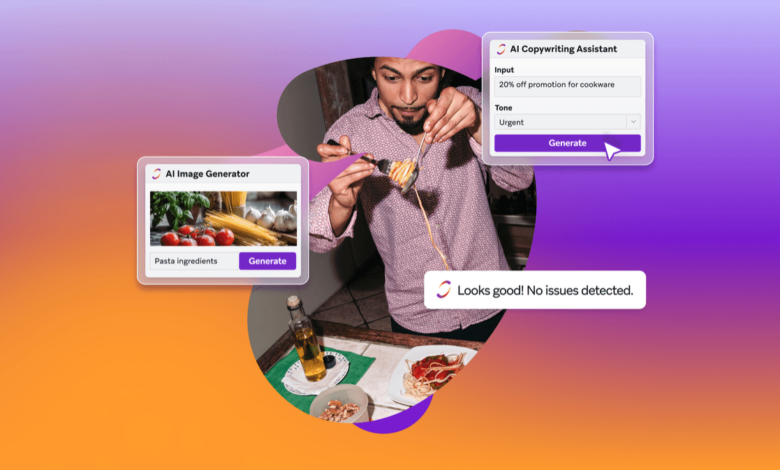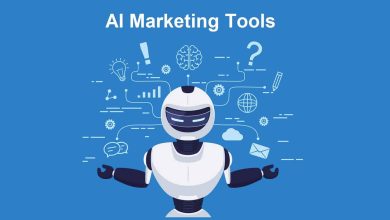
Although still in its infancy, AI has broad applications in marketing and is already having a significant impact on the industry. We have seen AI empowering brands to command huge amounts of data and engage consumers at scale in the most personalised, creative, and efficient ways ever, pushing the boundaries of what’s possible in marketing, especially in customer engagement.
This huge shift in the tech world is changing the way marketers work every day and, perhaps more importantly, the perceptions and expectations of consumers, throwing up both opportunities and challenges. Not least of which is the challenge of leveraging fast evolving AI capabilities with a responsible, yet experimental mindset.
The Key Drivers of AI in Marketing
Both consumers and marketers are hungry for more personalised, real-time customer experiences, which has been a major catalyst for the surge in AI adoption and innovation. Brands are moving away from rudimentary audience segmentation tactics toward deeply tailored journeys, with carefully constructed brand-consumer interactions based on individual needs, preferences, and previous interactions. AI enables marketers to do this at scale, using first-party data to deliver relevant and contextual experiences that stand out in an increasingly noisy market. However, while AI automates many complex tasks and reduces the need for deep technical expertise, a foundational understanding of data still remains valuable for maximising AI’s potential.
This is happening against a backdrop of economic headwinds and tightening budgets. AI enables teams to work smarter and complete tasks quicker whilst freeing up more time for creativity and strategy that delivers better results.
As AI develops, marketers are increasingly personalising to engage consumers in a way that is more intuitive, building deeper customer loyalty and richer relationships with their customers. The flip side of this is that those who don’t embrace AI may drop behind their competitors, both missing opportunities to increase revenue and efficiencies..
Challenges in Integrating AI Into Marketing
Alongside the benefits of AI comes a host of challenges. Marketers must approach AI adoption with a focus on experimentation, whilst being considerate of both governance and transparency.
As we feed AI with first-party data, the responsibility to protect consumer privacy is ever-present. Marketers need to ensure that data is ethically and transparently sourced, so consumers are aware of what they are sharing and where it is being used. With 45% of UK marketers expressing concerns over using personal data without consent, according to the 2025 Customer Engagement Review, maintaining trust is crucial. However, if done right, this transparency can be the foundation of long-lasting consumer loyalty and relationship building.
Marketing in 2030
AI has already changed the day-to-day activity of both marketers and consumers, and this change will continue into 2030 and beyond. The biggest changes so far have been empowering personalisation and the use of large data at scale. As this trend continues, we’re likely to see brands build the capability to create truly personal experiences at a huge scale, creating more free flowing narratives that are distinct to individuals, but that nevertheless reflect and reinforce brand values, tone, and community.
Rise of AI Agents
In 2030, AI innovation should continue to surge, with today’s foundational models advancing reasoning skills to achieve agentic software (which takes action and makes decisions without human oversight) leading the charge in a rapidly evolving list of AI applications.
In pursuit of both productivity and performance, brands will continue to experiment with AI across their workflow while also focusing on scaling the successful experiments from the last few years. We will see the joint use of generative content with machine learning optimisation leading marketers to approach their jobs at a higher level, automating experimentation and enabling them to create far better campaigns and more interactive customer journeys.
First-party data sets will continue to rise in importance as agentic AI will rely on real-time context to differentiate individual experiences and help brands stand out. However, as agentic AI plays a larger role and is trusted with more consumer data, brands must continue to embrace governance and transparency in monitoring AI output to ensure brand integrity.
A Digital Renaissance
In the future, AI’s biggest impact will be on creativity rather than technicality. Humans are hard-wired to be attracted to creative expression. AI, will reduce the barrier to entry and open up new creative channels including video, voice, imagery, music, and more.
We are about to enter another digital age of experimentation for marketers. With the confluence of innovation, experimentation, and personal expression. The goal will not be to consume, but to produce.
The world of marketing will shift again, democratising previously hard to attain consumer engagement strategies providing the opportunity to improve quality of life by making room for marketers to focus on what they often find most fulfilling … creativity.
AI as a Catalyst
AI is driving the next great wave of digital creativity, efficiency, and engagement. By embracing AI innovation with ethical caution, marketers can level up the way they engage with consumers with deeper personalised experiences that resonate with consumers on an individual level. Additionally, by allowing AI to optimise brands’ workflow they will be able to free up time to focus on innovative strategy and creativity.
As we step into the future, marketing will be shaped by the innovation and development of AI technology as well as how it embeds itself in society and daily life. The next decade promises to be one of unprecedented opportunities for marketers who are ready to lead the way as AI not only changes marketing but also the societal norms and creativity that underpin the industry.





